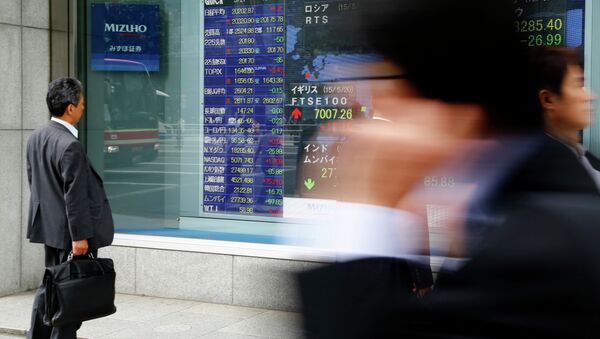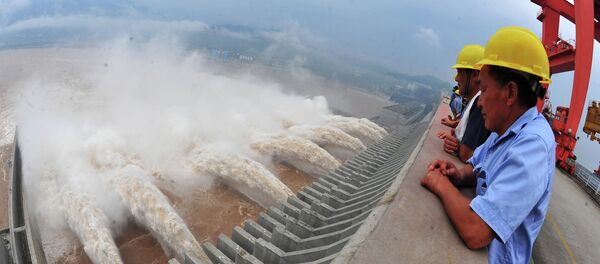Japanese shares retreated third day straight as the yen has been gaining ground against the US dollar, effectively impairing export revenues of the zaibatsu, most important, in electronics and automotive industries. Nissan Motor Co., extracting some 80% its profits from overseas sales, shed 2.9% on negative profits outlook. A stronger yen renders Japanese exports less competitive on a global scale. Fanuc, the robot-maker, led losses in the Nikkei 225, as only 17% its sales revenue is generated by the domestic market.
The Nikkei 225 Index lost 0.8% on Tuesday. The broader Topix Index shed 0.9% in Tokyo, with 29 out of 33 its industry groups in the red. The driving factor behind the losses, the yen, rose to 124.47 against the US dollar as the latter has been losing ground lately.
"We still have concerns over U.S. monetary policy and Greece hanging over our heads. If the U.S. moves towards raising rates, bonds will be sold, and if that turns into a big move, there'll also be consequences for stocks," Toshihiko Matsuno of the Tokyo-based SMBC Friend Securities Co. said.
Another concern, a softer mainland China's inflation data, added to the stock markets' anxiety. Consumer inflation in China fell to an annualized 1.2% in May, which is below the previously forecast 1.3%. The producer price index (PPI) remained at the previous month's reading of 4.6% negative, indicating an acute crisis in demand for the Chinese-made manufacturing goods.
The Chinese situation is more alarming if commodity prices are taken into account. Raw materials have rebounded somewhat from their 2014 lows, while the Chinese goods are depreciating further, while the Chinese labour has become increasingly expensive. The Communist nation is losing in competitiveness to its South-East Asian neighbours at an accelerated pace.
"The heavy industrial sectors that have led the economy since the early 2000s are mired in excess capacity, and producer price deflation is entrenched," Arthur Kroeber of Gavecal Dragononics said. "Clearly the boom times are over, and much more pain lies ahead."
MSCI's Index of APEX shares outside Japan shed 0.8%, setting its new 10-week lowest. In Indonesia, shares dipped 3%, in Philippines, stocks retreated 2.1%. The regional equities saw a significant flight of investors, putting their money in the US, Australian and Japanese bonds ahead of the projected tightening of monetary policy in the States.
Korea's Kospi Index shed 0.1%, New Zealand's NZX 50 Index retreated 0.3%. In Australia, the S&P/ASX 200 lost 0.1%.
However, the renew Chinese risks have had a positive impact on the crude oil market. Prices inched up on Tuesday amidst anticipations — likely, vain — of more stimulus measures to be implemented by Beijing.
"The weak data continues to point out the sluggish demand in the real economy. The government should roll out more easing measures to lower the real financing costs to boost growth," Yu Yafang of the Beijing-based Huachuang Securities said.
Benchmark Brent crude for delivery in June rose $0.25 to $62.94/bbl, while US crude added $0.3 to $58.44/bbl after posting losses the previous session.
While last Friday's OPEC meeting left crude production quota unchanged, market participants are now looking at how soon will Iran be able to resume its massive supply of crude. Iraq is another oil producer struggling to rejoin the supply side of the global oil market. These factors are causing significant downward pressure on the energy trading worldwide.



